



Side 1:
1. Hootie Blues
2. Red River Blues
3. Confessin' The Blues
4. Vine Street Boogie
5. 'Fore Day Rider
6. Sepian Bounce
7. Hold 'Em Hootie
8. Swingmatism
Side 2:
1. The Jumpin' Blues
2. One Woman's Blues
3. Get Me On Your Mind
4. Dexter Blues
5. Hootie's Ignorant Oil
6. (New) Confessin' The Blues
7. Lonely Boy Blues
8. So You Won't Jump
In some of the upcoming posts I’ll be looking at the big band roots of R&B. Some of the LPs that were on the original Be Bop Wino blog will be re-posted and I’ll also be adding some new albums – and here’s the first of the new ones – the band that jumps the blues – The Jay McShann Orchestra out of Kansas City.
In the years 1926 to 1939, thanks to the corrupt rule of city boss Tom Pendergast, Kansas City remained relatively untroubled by technicalities like prohibition and city laws limiting bar opening hours. A multiplicity of clubs, bars, dance halls and bawdy houses provided just the right raucous environment for the growth of a flourishing jazz scene. Musicians from all over the Southwest and beyond were attracted to the bright lights and low down dives of this latter day Gomorrah (okay, I’m getting carried away here, but indulge me.)
There was Piney Brown’s Sunset Club where barman Big Joe Turner shouted the blues to the accompaniment of Pete Johnson’s boogie woogie piano. The Count Basie band squeezed itself on to the cramped stage of the Reno Club while a young Charlie Parker watched from the shadows as Basie and Walter Page and Walter’s half brother “Hot Lips” Page, and Herschel Evans and most of all Lester Young swung like crazy. And there were the jam sessions when visiting musicians with reputations to maintain would come up against locally based musicians all too determined to make their own mark. In 1934 Coleman Hawkins, then the acknowledged king of the tenor sax, took on the K.C. triumverate of Ben Webster, Herschel Evans and Lester Young in a mammoth session at the Cherry Blossom. Hawkins had to concede defeat with Young generally considered to be the winner.
Although a round-the-clock live music scene flourished in this Godless city of sin (carried away again, sorry), no parallel recording industry was established and artists who wished to record and become nationally known had to move North. In 1936 the record company talent scouts swooped and the exodus of talent began. From a scene which was dominated early on by Walter Pages’ Oklahoma Blue Devils and Bennie Moten’s Kansas City Orchestra, there issued forth Count Basie (whose band developed out of the Page and Moten outfits), Andy Kirk and His Twelve Clouds of Joy (with brilliant pianist and arranger Mary Lou Williams and sax giant Ben Webster), the duo of boogie pianist Pete Johnson and blues shouter Big Joe Turner, Hot Lips Page, Harlan Leonard’s Rockets (they picked up drummer Johnny Otis on their travels as they headed ever westwards after failing to make it in NYC) and one of the last to leave – the Jay McShann Orchestra.
Pianist Jay McShann was born in Muskogee, Oklahoma in 1909. The early part of his career was spent touring the Southwest and Midwest in various territory bands, but in 1937 he settled into the Kansas City scene, forming a small band which included Gene Ramey on bass and Gus Johnson on drums.
The final Decca session took place in December 1943 with neither Gus Johnson nor Lucky Enois in the line up, although Paul Quinichette had been recruited on tenor sax. McShann was drafted in May 1944 and the band broke up. In early 1945 McShann briefly reformed the band but later in the year he moved to Los Angeles where he remained for the rest of the 1940s, achieving considerable success with small groups fronted by blues shouters Crown Prince Waterford and Jimmy Witherspoon.

Ripped from vinyl at 320 kbps.
Download from here:
1. Hootie Blues (De 8559)*
2. Red River Blues (De 8595)
3. Confessin' The Blues (De 8559)*
4. Vine Street Boogie (De 8570)
5. 'Fore Day Rider (De 8635)*
6. Sepian Bounce (De 4387)
7. Hold 'Em Hootie (De 8583)
8. Swingmatism (De 8570)
9. The Jumpin' Blues (De 4418)*
10. One Woman's Blues (De 8607)*
11. Get Me On Your Mind (De 4418)**
12. Dexter Blues (De 8583)
13. Hootie's Ignorant Oil (De 8635)*
14. (New) Confessin' The Blues (De 8595)*
15. Lonely Boy Blues (De 4387)*
16. So You Won't Jump (De 8607)
* vocal = Walter Brown
** vocal = Al Hibbler
Recommended purchase:
From the Jazz Greats series – number 34 “Jazz City – Kansas City” magazine and CD now available as a download from Jazz Greats Online. 21 tracks including Walter Page’s Blue Devils, Benny Moten, Julia Lee, Big Joe Turner, Andy Kirk, Count Basie, Jay McShann, Harlan Leonard, Charlie Parker and others.

Recommended reading:
Bird Lives! by Ross Russell.
Big Band Jazz by Albert McCarthy
1. Hootie Blues
2. Red River Blues
3. Confessin' The Blues
4. Vine Street Boogie
5. 'Fore Day Rider
6. Sepian Bounce
7. Hold 'Em Hootie
8. Swingmatism
Side 2:
1. The Jumpin' Blues
2. One Woman's Blues
3. Get Me On Your Mind
4. Dexter Blues
5. Hootie's Ignorant Oil
6. (New) Confessin' The Blues
7. Lonely Boy Blues
8. So You Won't Jump
In some of the upcoming posts I’ll be looking at the big band roots of R&B. Some of the LPs that were on the original Be Bop Wino blog will be re-posted and I’ll also be adding some new albums – and here’s the first of the new ones – the band that jumps the blues – The Jay McShann Orchestra out of Kansas City.
In the years 1926 to 1939, thanks to the corrupt rule of city boss Tom Pendergast, Kansas City remained relatively untroubled by technicalities like prohibition and city laws limiting bar opening hours. A multiplicity of clubs, bars, dance halls and bawdy houses provided just the right raucous environment for the growth of a flourishing jazz scene. Musicians from all over the Southwest and beyond were attracted to the bright lights and low down dives of this latter day Gomorrah (okay, I’m getting carried away here, but indulge me.)
There was Piney Brown’s Sunset Club where barman Big Joe Turner shouted the blues to the accompaniment of Pete Johnson’s boogie woogie piano. The Count Basie band squeezed itself on to the cramped stage of the Reno Club while a young Charlie Parker watched from the shadows as Basie and Walter Page and Walter’s half brother “Hot Lips” Page, and Herschel Evans and most of all Lester Young swung like crazy. And there were the jam sessions when visiting musicians with reputations to maintain would come up against locally based musicians all too determined to make their own mark. In 1934 Coleman Hawkins, then the acknowledged king of the tenor sax, took on the K.C. triumverate of Ben Webster, Herschel Evans and Lester Young in a mammoth session at the Cherry Blossom. Hawkins had to concede defeat with Young generally considered to be the winner.
Although a round-the-clock live music scene flourished in this Godless city of sin (carried away again, sorry), no parallel recording industry was established and artists who wished to record and become nationally known had to move North. In 1936 the record company talent scouts swooped and the exodus of talent began. From a scene which was dominated early on by Walter Pages’ Oklahoma Blue Devils and Bennie Moten’s Kansas City Orchestra, there issued forth Count Basie (whose band developed out of the Page and Moten outfits), Andy Kirk and His Twelve Clouds of Joy (with brilliant pianist and arranger Mary Lou Williams and sax giant Ben Webster), the duo of boogie pianist Pete Johnson and blues shouter Big Joe Turner, Hot Lips Page, Harlan Leonard’s Rockets (they picked up drummer Johnny Otis on their travels as they headed ever westwards after failing to make it in NYC) and one of the last to leave – the Jay McShann Orchestra.
Pianist Jay McShann was born in Muskogee, Oklahoma in 1909. The early part of his career was spent touring the Southwest and Midwest in various territory bands, but in 1937 he settled into the Kansas City scene, forming a small band which included Gene Ramey on bass and Gus Johnson on drums.
In 1939 the law finally caught up with Boss Pendergast and his cohorts who were carted off to prison on tax evasion and corruption charges, and as K.C. prepared to make the transformation from Godless to God fearing, the night time neon glare dimmed as many clubs and bars closed down, throwing a host of musicians out of work. Every cloud has a silver lining and Jay McShann, who had managed to raise the necessary financial backing, set about augmenting his septet and transforming it into a twelve piece big band. A rock steady Basie style rhythm section consisting of McShann (piano), Gus Johnson (drums), Gene Ramey (bass) and Lucky Enois (guitar) provided the basis for a powerful riff, boogie and blues based outfit.
Heading up the reeds section was young alto sax prodigy Charlie Parker. The band embarked on several gruelling tours of the South and Midwest and had its first recording session for Decca in Dallas in April 1941 (tracks 8, 1, 12, 4 and 3.)
The last addition to the band personnel before the session was blues shouter Walter Brown, for Decca producer Dave Kapp wanted the band to record the blues rather than show their jazz side. Indeed three of the sides (“Vine Street Boogie”, “Hold ‘Em Hootie” and “Confessin’ The Blues”) featured the rhythm section only, with a vocal contribution from Brown on “Hold ‘Em” and “Confessin’”. Parker was heard on “Swingmatism” and also on “Hootie Blues” which he co-wrote with McShann.
Of course it was “Confessin’ The Blues” which captured the record buying public’s imagination and it has become a blues standard, being subsequently revived by Chuck Berry, Little Walter and later by The Rolling Stones. The success of “Confessin’” led to Walter Brown’s vocals dominating the even more blues-drenched second session for Decca held in Chicago in November 1941 (tracks 2, 5, 10, 13, 14, 16.) Of the eight tracks recorded, all were Walter Brown vehicles with the exception of “So You Won’t Jump.”
The band was an extremely popular live act and proved itself to be a formidable opponent in band battles. In 1940 – 41 Earl Hines, Milt Larkin and Nat Towles were vanquished, but the McShann band had to give second best to Duke Ellington. When the band made its New York debut in early 1942 in a battle of the bands at The Savoy Ballroom against Lucky Millinder, the result was a resounding victory for Kansas City, possibly provoked by a pre-battle telegram sent by Millinder: “We’re gonna chase you hicks right back to the sticks.”

At the Savoy in early 1942.
During 1942 Jimmy Coe (baritone sax) was added to the personnel and on tenor sax Jimmy Forrest had a stint with the band, although he wasn’t on the July 1942 Decca recording session. That session did mark the recording debut of band ballad singer Al Hibbler on “Get Me On Your Mind” which turned out to be the only track he recorded with McShann. “Lonely Boy Blues” and “The Jumpin’ Blues” were Walter Brown vocal performances and “Sepian Bounce” was an all too rare opportunity for the whole band to show its jazz chops, with two solos from Charlie Parker. “The Jumpin’ Blues” is my favourite track on the album – a superb riffer with great piano intro from McShann, a solo from Parker and solid blues shouting from Brown.
After the recording session the band was scheduled to return to Kansas City, but Parker elected to remain in New York where he immersed himself in the jam session scene at Monroe’s Uptown House and Minton’s Playhouse. Towards the end of the year he joined the Earl Hines Orchestra along with two other refugees from the McShann band – John Jackson and Bernard Anderson. The time remaining to the Jay McShann Orchestra was marked by an increasingly high turnover in personnel, with many of the original KC musicians giving way to musicians from New York and Chicago.
Heading up the reeds section was young alto sax prodigy Charlie Parker. The band embarked on several gruelling tours of the South and Midwest and had its first recording session for Decca in Dallas in April 1941 (tracks 8, 1, 12, 4 and 3.)
The last addition to the band personnel before the session was blues shouter Walter Brown, for Decca producer Dave Kapp wanted the band to record the blues rather than show their jazz side. Indeed three of the sides (“Vine Street Boogie”, “Hold ‘Em Hootie” and “Confessin’ The Blues”) featured the rhythm section only, with a vocal contribution from Brown on “Hold ‘Em” and “Confessin’”. Parker was heard on “Swingmatism” and also on “Hootie Blues” which he co-wrote with McShann.
Of course it was “Confessin’ The Blues” which captured the record buying public’s imagination and it has become a blues standard, being subsequently revived by Chuck Berry, Little Walter and later by The Rolling Stones. The success of “Confessin’” led to Walter Brown’s vocals dominating the even more blues-drenched second session for Decca held in Chicago in November 1941 (tracks 2, 5, 10, 13, 14, 16.) Of the eight tracks recorded, all were Walter Brown vehicles with the exception of “So You Won’t Jump.”
The band was an extremely popular live act and proved itself to be a formidable opponent in band battles. In 1940 – 41 Earl Hines, Milt Larkin and Nat Towles were vanquished, but the McShann band had to give second best to Duke Ellington. When the band made its New York debut in early 1942 in a battle of the bands at The Savoy Ballroom against Lucky Millinder, the result was a resounding victory for Kansas City, possibly provoked by a pre-battle telegram sent by Millinder: “We’re gonna chase you hicks right back to the sticks.”

At the Savoy in early 1942.
During 1942 Jimmy Coe (baritone sax) was added to the personnel and on tenor sax Jimmy Forrest had a stint with the band, although he wasn’t on the July 1942 Decca recording session. That session did mark the recording debut of band ballad singer Al Hibbler on “Get Me On Your Mind” which turned out to be the only track he recorded with McShann. “Lonely Boy Blues” and “The Jumpin’ Blues” were Walter Brown vocal performances and “Sepian Bounce” was an all too rare opportunity for the whole band to show its jazz chops, with two solos from Charlie Parker. “The Jumpin’ Blues” is my favourite track on the album – a superb riffer with great piano intro from McShann, a solo from Parker and solid blues shouting from Brown.
After the recording session the band was scheduled to return to Kansas City, but Parker elected to remain in New York where he immersed himself in the jam session scene at Monroe’s Uptown House and Minton’s Playhouse. Towards the end of the year he joined the Earl Hines Orchestra along with two other refugees from the McShann band – John Jackson and Bernard Anderson. The time remaining to the Jay McShann Orchestra was marked by an increasingly high turnover in personnel, with many of the original KC musicians giving way to musicians from New York and Chicago.
The final Decca session took place in December 1943 with neither Gus Johnson nor Lucky Enois in the line up, although Paul Quinichette had been recruited on tenor sax. McShann was drafted in May 1944 and the band broke up. In early 1945 McShann briefly reformed the band but later in the year he moved to Los Angeles where he remained for the rest of the 1940s, achieving considerable success with small groups fronted by blues shouters Crown Prince Waterford and Jimmy Witherspoon.
Charlie Parker and Walter Brown represented the two opposing poles of the music that would develop from big band swing. One was the bebop genius who would become one of the greatest figures in twentieth century jazz, the other was the blues shouter who enjoyed early success which he never quite recaptured after the Jay McShann Orchestra split up. However, they shared a fondness for booze and heroin, an unfortunate enthusiasm which brought about their premature deaths – Parker in March 1955 and Brown in June 1956.

Ripped from vinyl at 320 kbps.
Download from here:
1. Hootie Blues (De 8559)*
2. Red River Blues (De 8595)
3. Confessin' The Blues (De 8559)*
4. Vine Street Boogie (De 8570)
5. 'Fore Day Rider (De 8635)*
6. Sepian Bounce (De 4387)
7. Hold 'Em Hootie (De 8583)
8. Swingmatism (De 8570)
9. The Jumpin' Blues (De 4418)*
10. One Woman's Blues (De 8607)*
11. Get Me On Your Mind (De 4418)**
12. Dexter Blues (De 8583)
13. Hootie's Ignorant Oil (De 8635)*
14. (New) Confessin' The Blues (De 8595)*
15. Lonely Boy Blues (De 4387)*
16. So You Won't Jump (De 8607)
* vocal = Walter Brown
** vocal = Al Hibbler
Recommended purchase:
From the Jazz Greats series – number 34 “Jazz City – Kansas City” magazine and CD now available as a download from Jazz Greats Online. 21 tracks including Walter Page’s Blue Devils, Benny Moten, Julia Lee, Big Joe Turner, Andy Kirk, Count Basie, Jay McShann, Harlan Leonard, Charlie Parker and others.

Recommended reading:
Bird Lives! by Ross Russell.
Big Band Jazz by Albert McCarthy







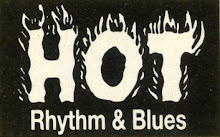
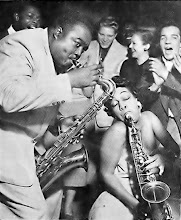





%2078%20-%2060428BB.png)
.jpg)

















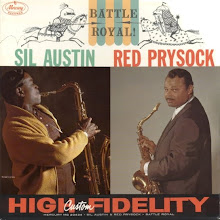
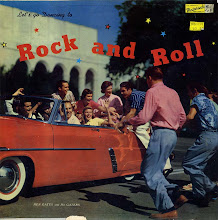
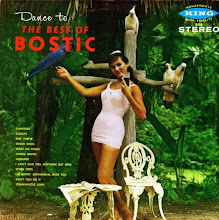
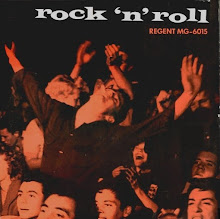
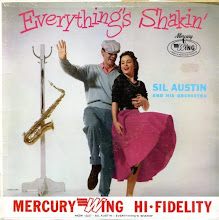






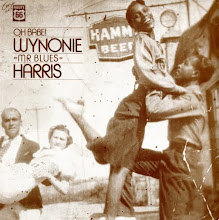

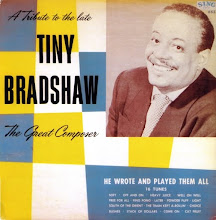





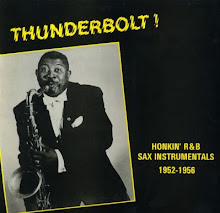

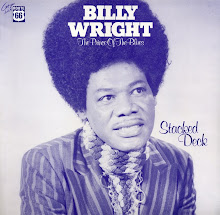






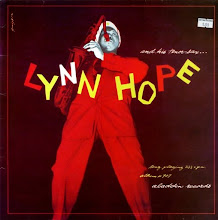



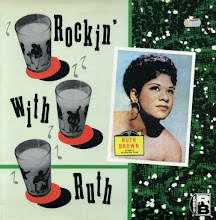


5 comments:
This is such an informative post. I have an actual picture in my mind of the Kansas City music scene in all of its glory (and infamy). Wonderful! Thanks, Boogiewoody.
Marie
P.S. I'm so honoured to be included in your blog list.
Thanks for the Jay McShann. Was just digging on some later tracks on the American Splendor soundtrack CD and was looking for his early stuff.
Once again, the awesome power of Boogiewoody comes through!
:)
Matt D
Great, great post -- the tunes, of course, but also the write-up (even those moments when you say you're getting carried away -- because you're not -- it was ALL true)!
Thank you!
David
Kansas City MO USA
Thanks for the Jay McShann with Bird et al. Should be in every jazz fans collection. KC at its best.
I'm so thankful to have seen Jay and Fiddler Williams all those times, growing up in Kay Cee!
Post a Comment